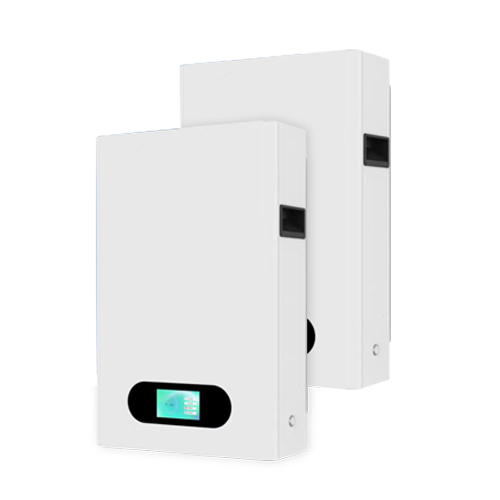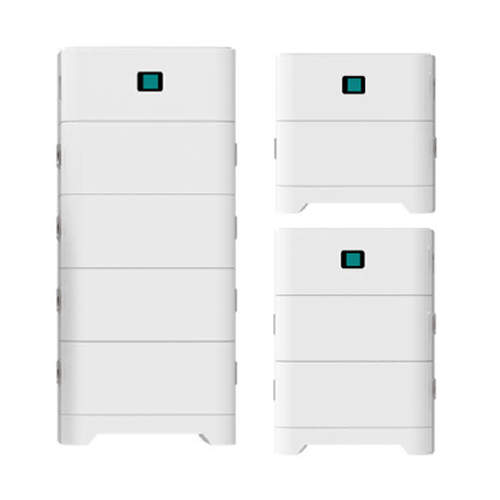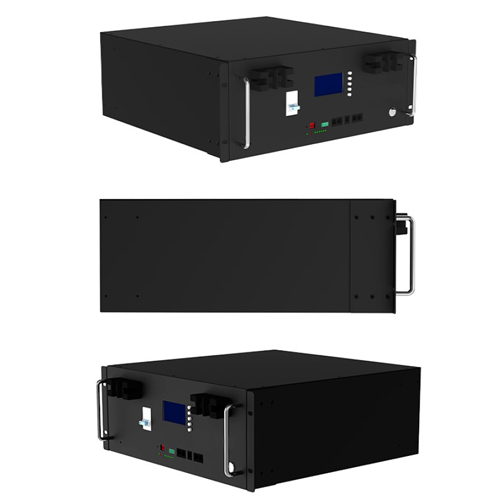NOTÍCIAS
Bem-vindo ao meu blog!
Antes de mergulharmos no conteúdo, se você estiver interessado em nossos produtos ou tiver alguma dúvida, sinta-se à vontade para visitar nosso Contate-nos página do site. Nossa equipe está pronta para ajudar você com dúvidas, pedidos ou qualquer suporte que você precisar.
Agora, vamos começar nossa jornada juntos. Espero que você ache o conteúdo aqui esclarecedor, envolvente e valioso.
Índice
The adoption of house solar batteries is rapidly growing as homeowners seek energy independence, reduced electricity bills, and a greener lifestyle. With the increasing efficiency of solar panels and the rising cost of electricity, a house solar battery is no longer a luxury—it’s becoming a necessity for modern homes. Choosing the right house solar battery for your home, however, can be overwhelming with numerous brands, technologies, and capacities available. This guide will help you understand the essential factors to consider, compare the top options, and make an informed decision that suits your home’s energy needs.
Why You Need a House Solar Battery

Benefits of Installing a Solar Battery at Home
A house solar battery allows you to store excess energy generated from your solar panels, providing multiple advantages:
- Energy Independence: Reduce reliance on the grid and protect yourself from rising electricity prices. In areas with frequent blackouts, a solar battery ensures your home remains powered.
- Lower Electricity Bills: By storing solar energy during the day and using it during peak evening hours, homeowners can significantly cut monthly electricity expenses.
- Environmental Benefits: Utilizing renewable energy stored in a solar battery reduces your household’s carbon footprint, contributing to a cleaner planet.
- Increased Home Value: Homes equipped with solar battery systems are increasingly attractive to buyers, making it a valuable investment.
Common Use Cases for Home Solar Batteries
House solar batteries are versatile and serve various needs:
- Power Outages: Ensure uninterrupted power supply during emergencies, keeping essential appliances like refrigerators, lights, and security systems running.
- Peak Shaving: Optimize energy consumption by using stored power during periods of high demand, reducing utility costs.
- Off-Grid Systems: Perfect for homes in remote areas or for homeowners seeking full independence from the grid.
- EV Charging: Homeowners with electric vehicles can use stored solar energy to charge their cars, further reducing reliance on grid electricity.
How House Solar Batteries Work
Basic Components and Functionality
A typical house solar battery system includes:
- Battery Cells: Store energy generated from solar panels for later use. Advanced lithium-ion batteries can store energy efficiently with minimal losses.
- Inverters: Convert the battery’s stored DC power into AC power compatible with home appliances. Some systems feature bi-directional inverters that also allow feeding excess energy back to the grid.
- Monitoring Systems: Many modern house solar batteries come with apps or dashboards that allow homeowners to track energy production, storage, and consumption in real-time.
Charging and Discharging Cycles
Understanding charging and discharging is crucial for battery efficiency:
- Charging: Solar panels charge the battery during daylight hours, storing excess energy not immediately used.
- Discharging: Stored energy powers your home when solar generation is insufficient or during outages.
- Battery Lifespan Considerations: Lithium-ion batteries typically last 10–15 years, while proper maintenance can extend this lifespan. Battery health can also be monitored via smart systems to ensure optimal performance.
Tipos de House Solar Batteries

Lithium-Ion vs. Lead-Acid Batteries
- Lithium-Ion: Known for high energy density, long lifespan, lightweight design, and efficiency. Ideal for homeowners seeking reliable performance. Higher upfront cost is offset by longevity and lower maintenance.
- Lead-Acid: More affordable, widely used, but bulkier and less efficient. Requires periodic maintenance and has a shorter lifespan compared to lithium-ion batteries.
Other Battery Technologies
- Flow Batteries: Provide long lifespan and deep discharge capacity, suitable for large homes or off-grid systems. They are less common due to higher upfront costs.
- Saltwater Batteries: Eco-friendly and safe, using non-toxic materials. Ideal for environmentally conscious homeowners, though they tend to have lower energy density and higher initial cost.
How to Choose the Right Capacity for Your Home
Calculating Your Energy Needs
To select the appropriate battery, you must understand your home’s energy consumption:
- Average Household Consumption: Check your electricity bills to determine daily kWh usage.
- Peak Load Considerations: Identify appliances that must run during power outages or peak hours.
- Future Energy Expansion: Consider plans for electric vehicle charging or additional solar panels when calculating capacity.
Sizing Your Solar Battery
- Single Battery vs. Multiple Batteries: Depending on your energy needs, one large battery may suffice, but multiple smaller batteries allow flexibility and future expansion.
- Scalability: Some systems allow adding additional batteries easily, providing a cost-effective upgrade path as your energy demands grow.
Top Brands and Models of House Solar Batteries
Tesla Powerwall
- Características: High energy density, integrated smart software, scalable design, reliable warranty.
- Pros: Sleek design, industry-leading technology, strong customer support.
- Cons: Higher cost and professional installation required.
LG Chem RESU and Other Options
- Características: Compact size, high efficiency, compatible with most inverters.
- Pros: Reliable performance, suitable for various home sizes.
- Cons: Slightly lower energy capacity compared to Tesla Powerwall, but often more cost-effective.
Other Recommended Brands
- Sonnen: Focus on intelligent energy management with long-term warranties.
- Enphase: Modular batteries, easy to expand, with strong monitoring features.
Cost and Financial Considerations
Installation Costs and ROI
- Average Cost: House solar battery systems range from $7,000 to $12,000 including installation.
- Return on Investment: Depending on your energy usage and local electricity rates, most homeowners recover their investment in 5–10 years.
Incentives, Rebates, and Tax Credits
- Government Programs: Federal, state, and local incentives can substantially reduce upfront costs.
- Utility Rebates: Some energy providers offer rebates for residential solar battery installations, further improving ROI.
Maintenance and Lifespan of House Solar Batteries
Dicas de manutenção de rotina
- Keep the battery environment clean, dry, and ventilated.
- Regularly update software and monitor battery performance.
- Periodically inspect connections and wiring to prevent issues.
Signs Your Battery Needs Replacement
- Reduced storage capacity or efficiency.
- Frequent error messages or system warnings.
- Age: Most batteries require replacement after 10–15 years.
Common Mistakes to Avoid When Choosing a House Solar Battery

- Overestimating or Underestimating Energy Needs: Proper sizing ensures optimal performance and cost-effectiveness.
- Ignoring Warranty and Service Options: Always review warranties and after-sales support before purchasing.
- Choosing Cheapest Options: Low-cost batteries often compromise efficiency, lifespan, or safety.
- Neglecting Installation Quality: Professional installation ensures safety, reliability, and warranty compliance.
Conclusão
Choosing the best house solar battery for your home requires careful consideration of energy needs, system capacity, technology types, brands, costs, and maintenance. By understanding your household consumption, evaluating available options, and planning for future energy needs, you can invest in a reliable, efficient, and eco-friendly energy solution. A well-chosen house solar battery not only lowers your electricity bills but also enhances your home’s resilience and contributes to a sustainable future.
Perguntas frequentes
What is a house solar battery?
A house solar battery stores excess energy generated by solar panels, allowing you to use it later, reduce electricity bills, and have backup power during outages.
How long does a house solar battery last?
Most lithium-ion house solar batteries last 10–15 years, depending on usage, maintenance, and battery quality.
Pode um house solar battery power my entire home?
It depends on the battery capacity. Some can power essential appliances for several hours, while larger or multiple batteries can support most or all of a home’s electricity needs.
Do I need professional installation for a house solar battery?
Yes. Professional installation ensures safety, optimal performance, and compliance with warranties and local electrical codes.
What are the best house solar battery brands?
Top-rated options include Tesla Powerwall, LG Chem RESU, Sonnen, and Enphase, known for reliability, efficiency, and smart energy management features.
Need Help Choosing the Right House Solar Battery?
If you’re unsure about which house solar battery is best for your home or energy needs, our experts are here to help. Contate-nos today for a personalized consultation, and ensure your home solar system is efficient, reliable, and tailored to your lifestyle. Don’t wait to maximize your energy savings—get in touch now to secure a smarter, greener home!

